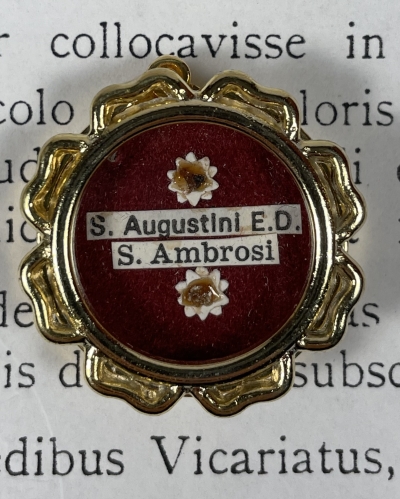Saint Augustine of Hippo (†430) was an early Christian theologian and philosopher whose writings influenced the development of Western Christianity and Western philosophy. He was the bishop of Hippo Regius in north Africa and is viewed as one of the most important Church Fathers in Western Christianity for his writings in the Patristic Era. Augustine was canonized by popular acclaim and later recognized as a Doctor of the Church in 1298 by Pope Boniface VIII. His feast day is 28 August, and he is venerated by all Christian denominations which venerate saints. He is considered the patron saint of brewers, printers, theologians, sore eyes, and a number of cities and dioceses.
Saint Aurelius Ambrosius (†397), better known in English as Ambrose, was a bishop of Milan who became one of the most influential ecclesiastical figures of the 4th century. Ambrose was a staunch opponent of Arianism, and has been accused of fostering persecution of Arians, Jews, and pagans. Traditionally, Ambrose is credited with promoting "antiphonal chant", a style of chanting in which one side of the choir responds alternately to the other, as well as with composing Veni redemptor gentium, an Advent hymn. Ambrose was one of the four original Doctors of the Church, and is the patron saint of Milan. His feast day is celebrated on December 7 and he is the patron saint of Beekeepers; bees; bishops; candle makers; domestic animals; French Commissariat; geese; learning; livestock; Milan; police officers; students; and wax refiners.









 Поменять язык на русский
Поменять язык на русский 